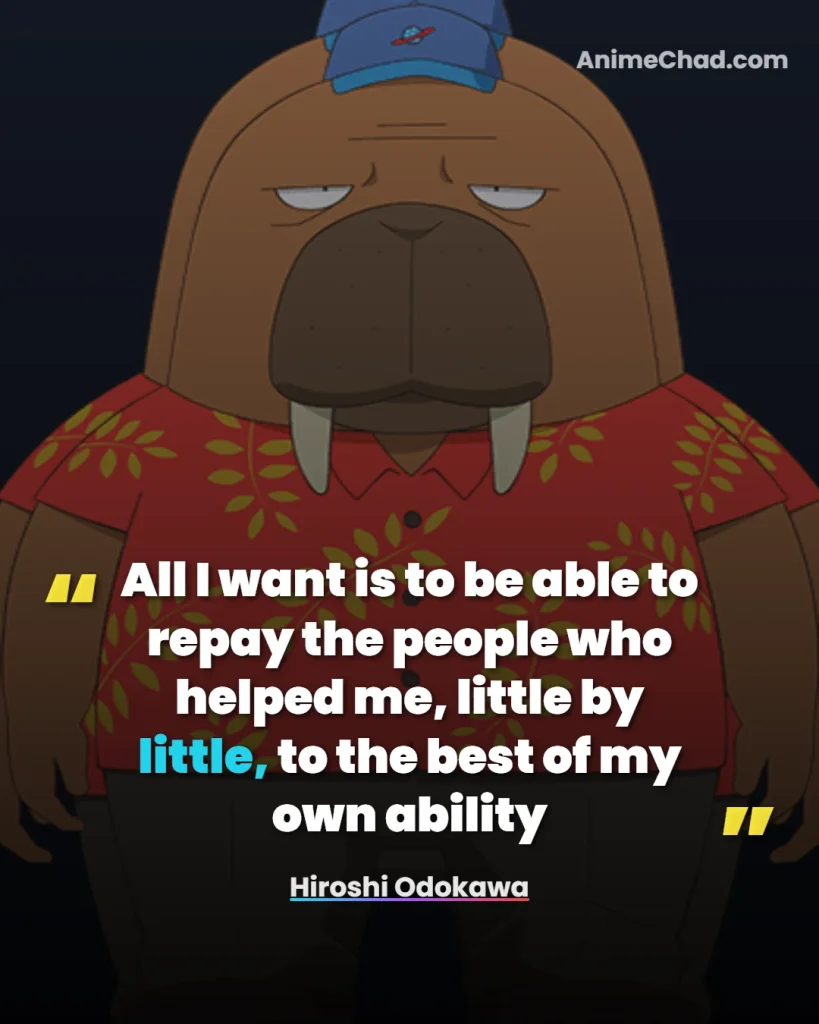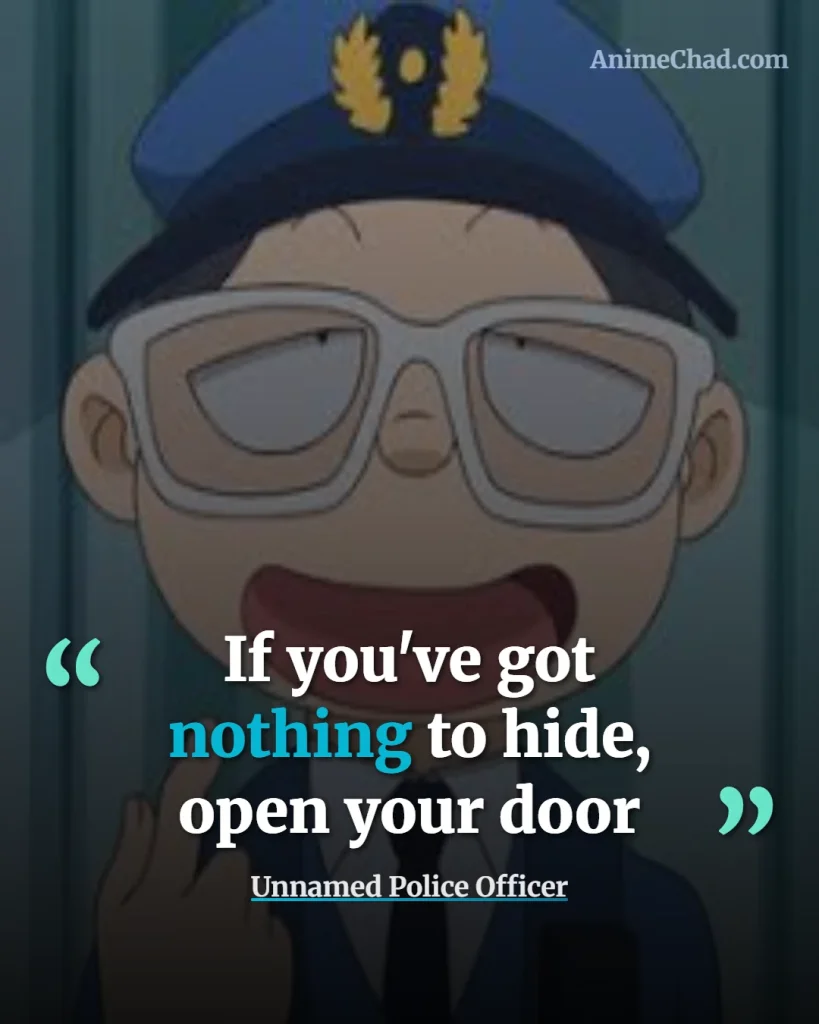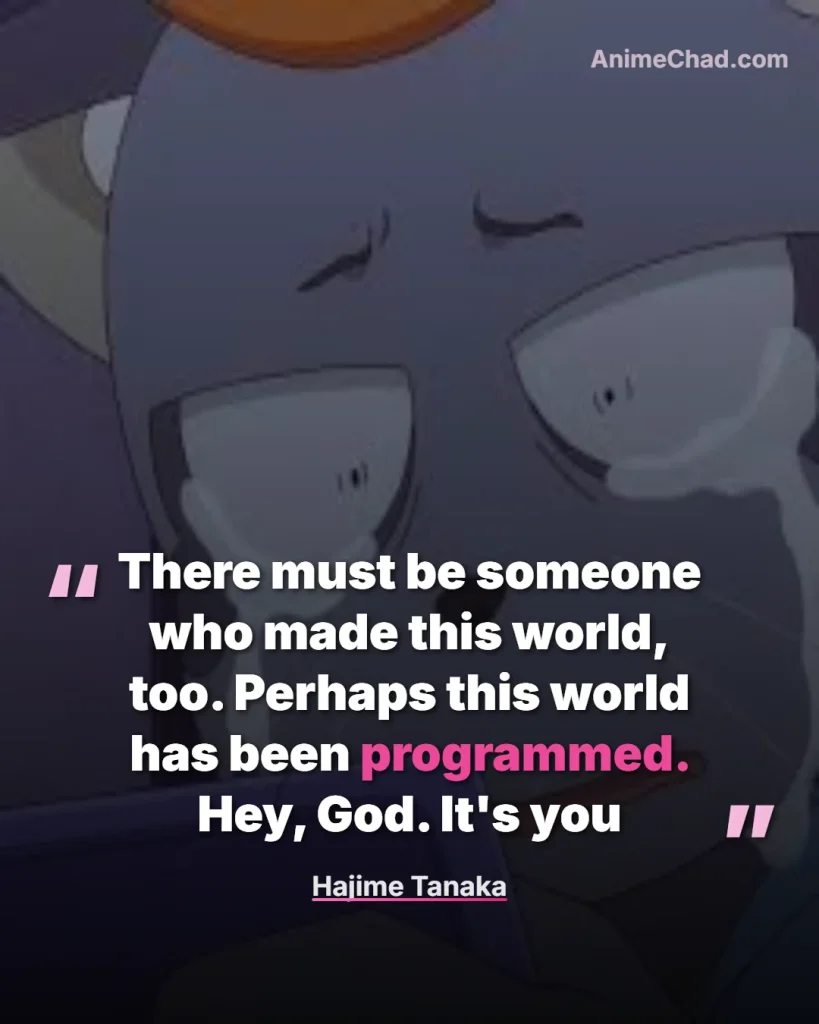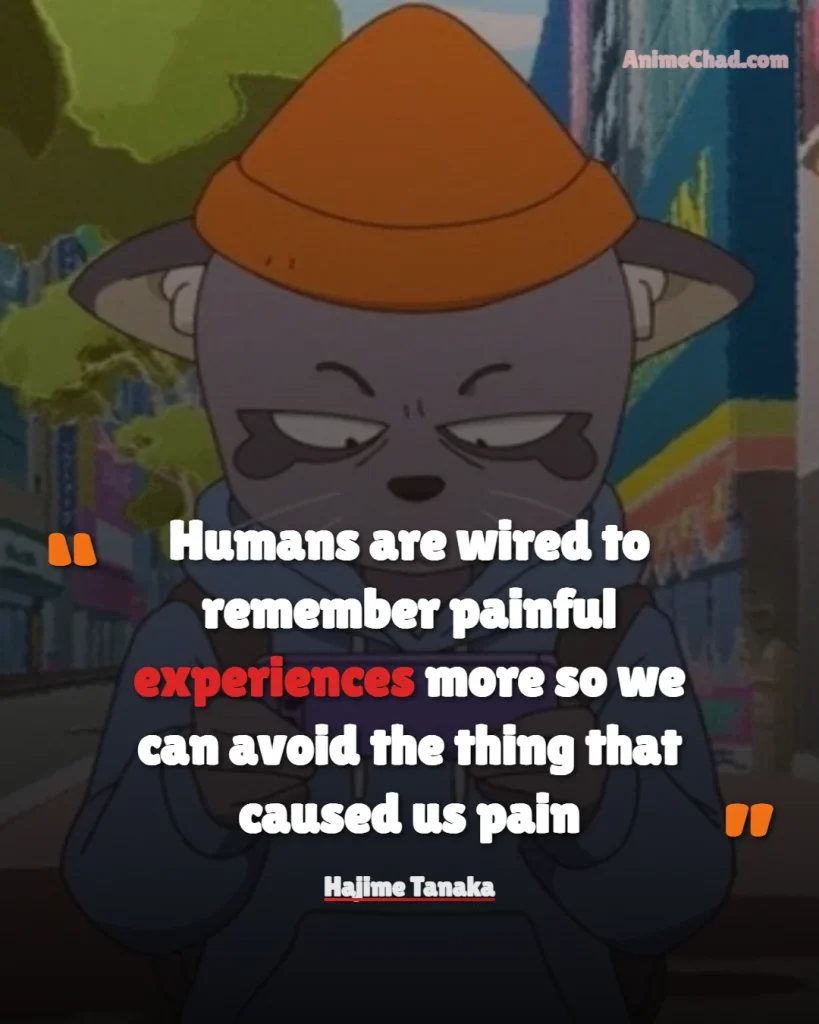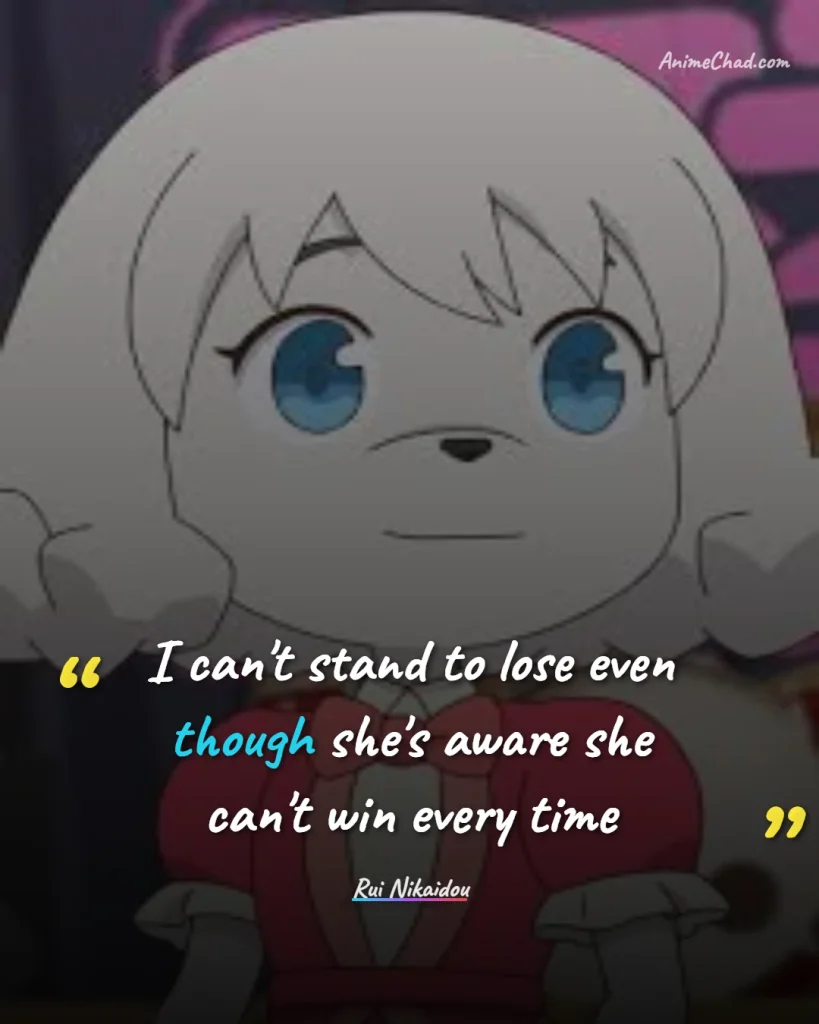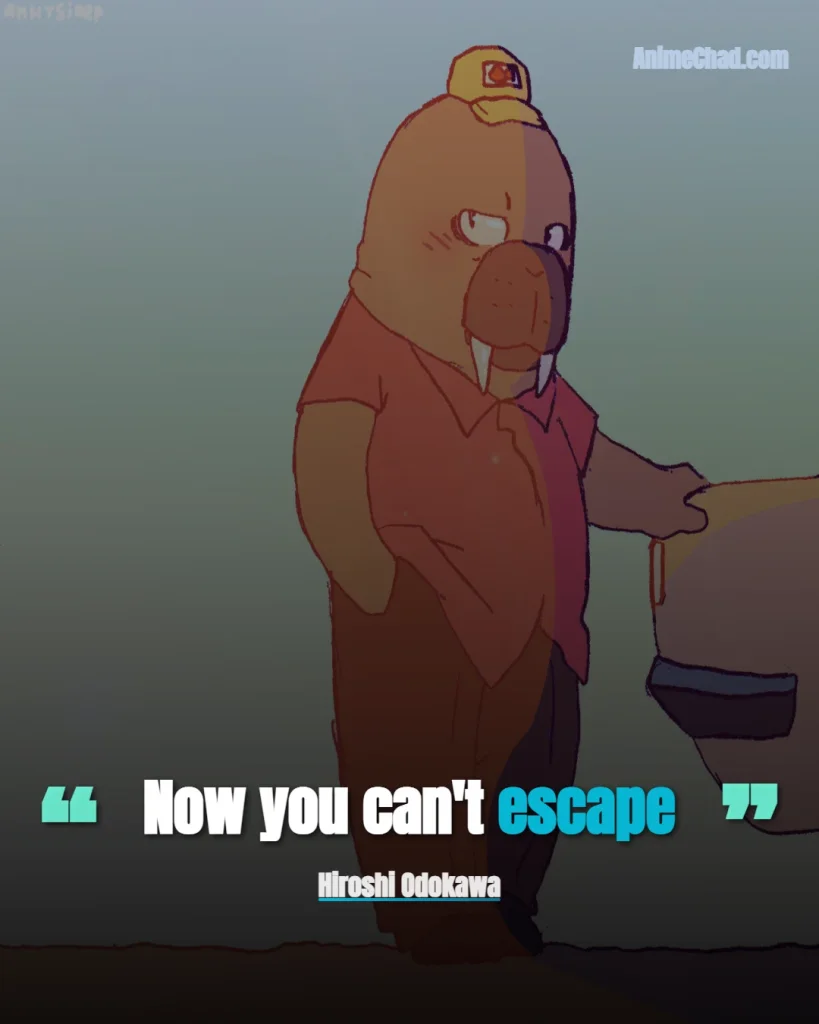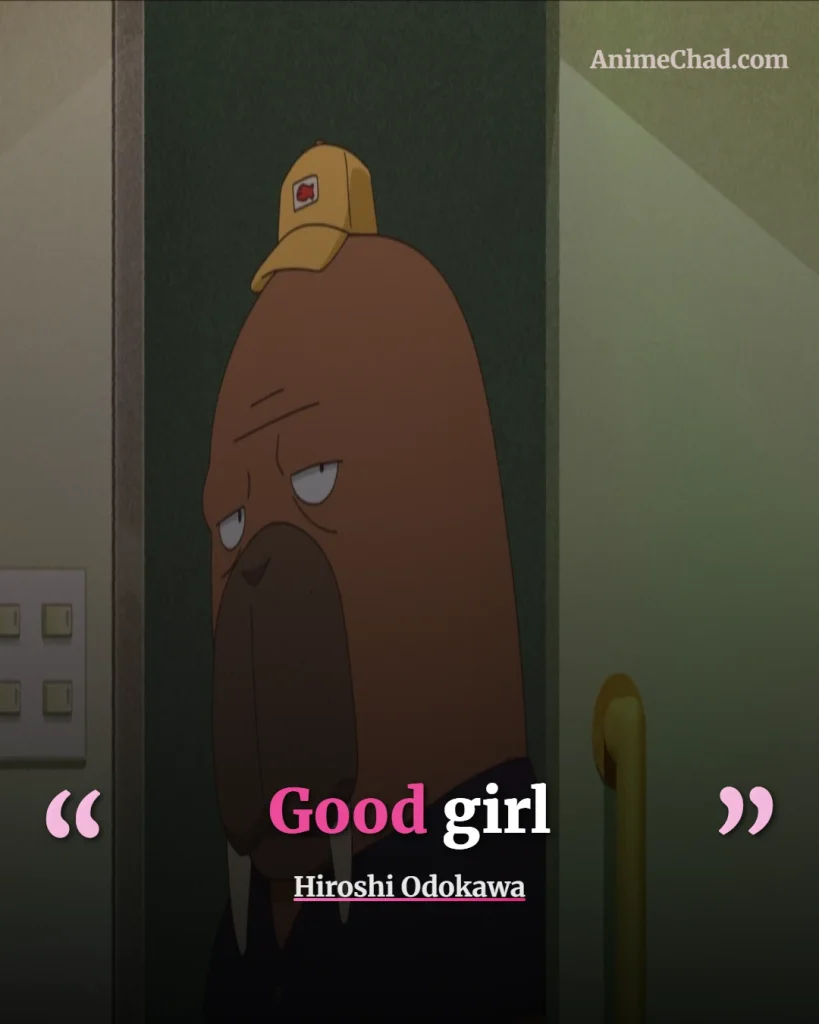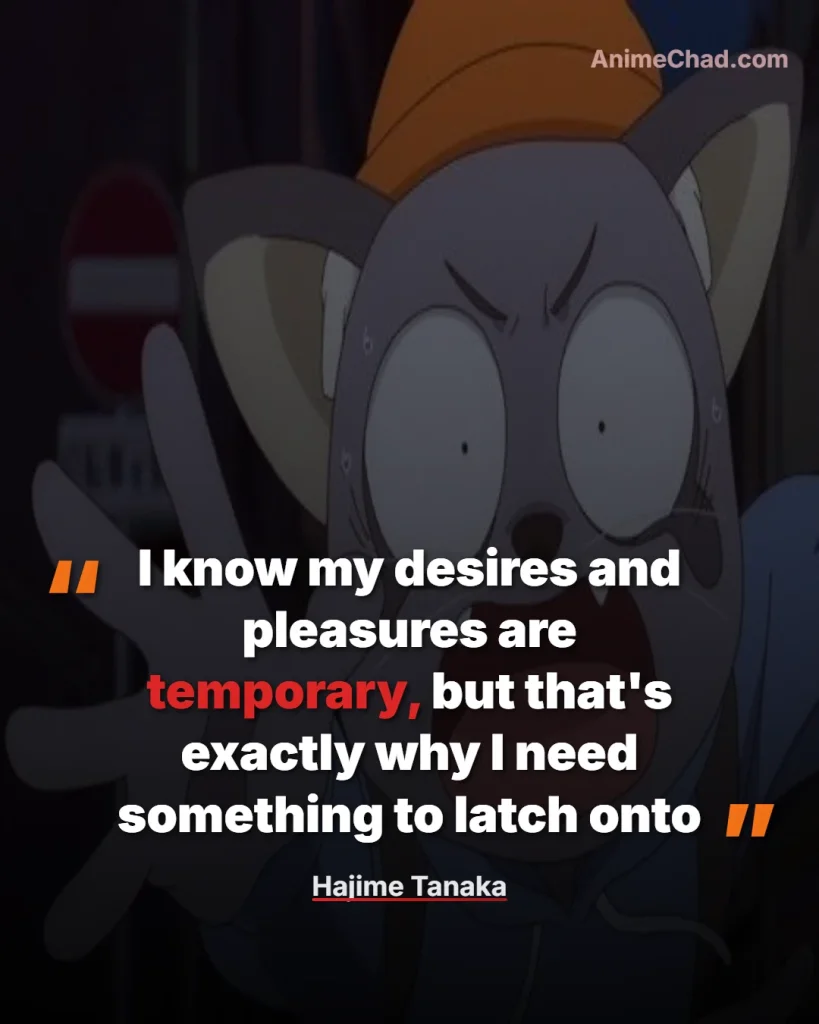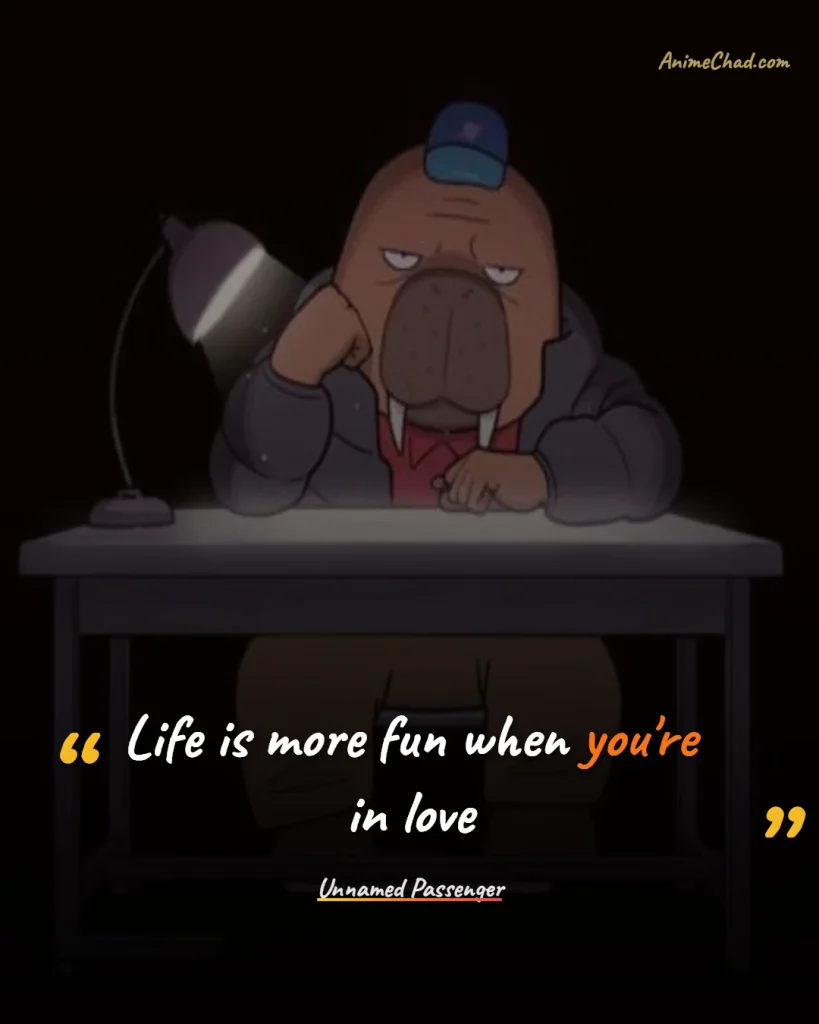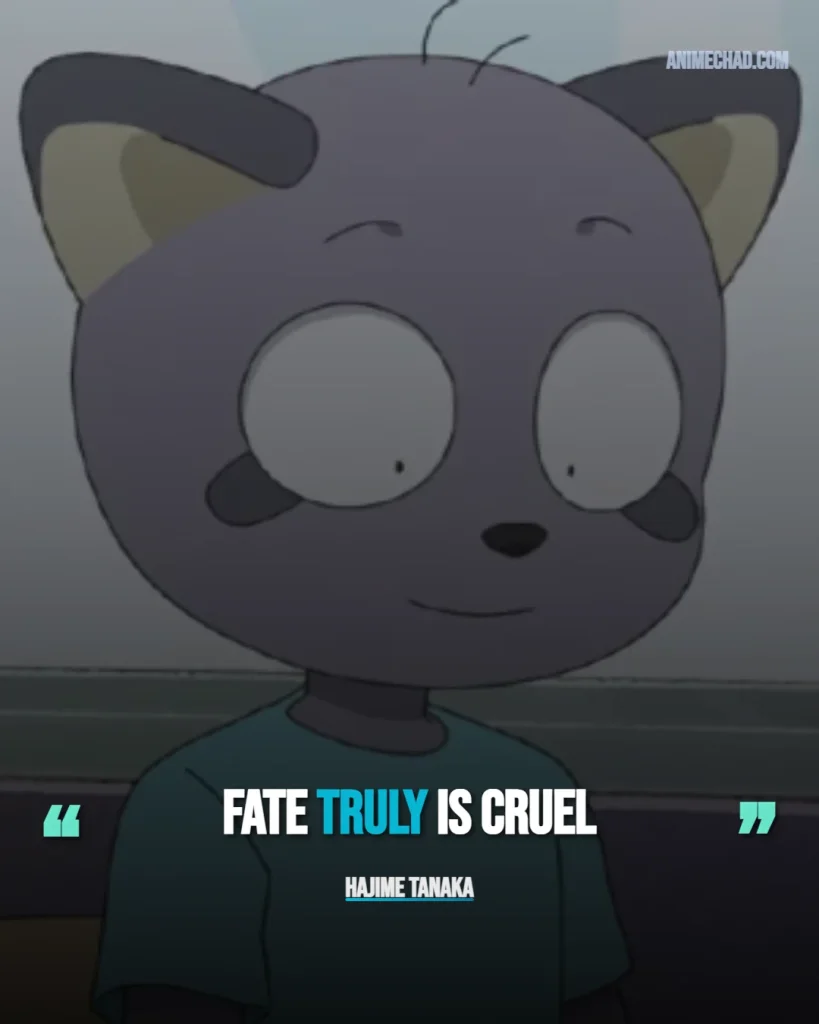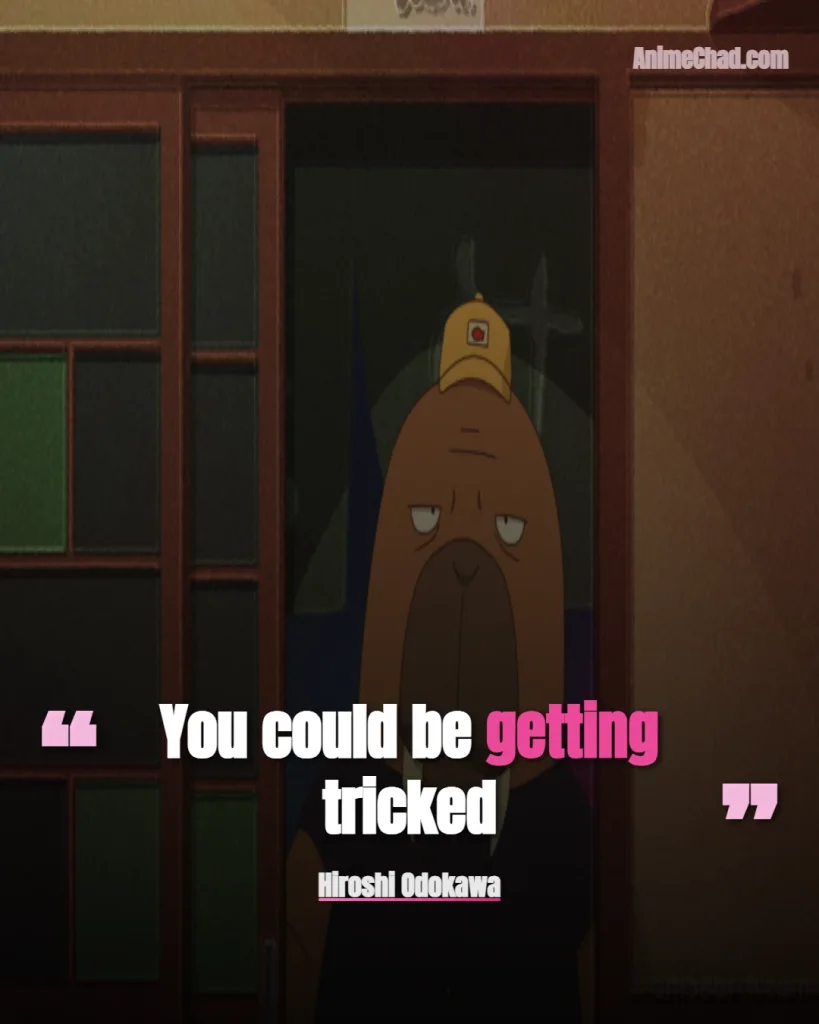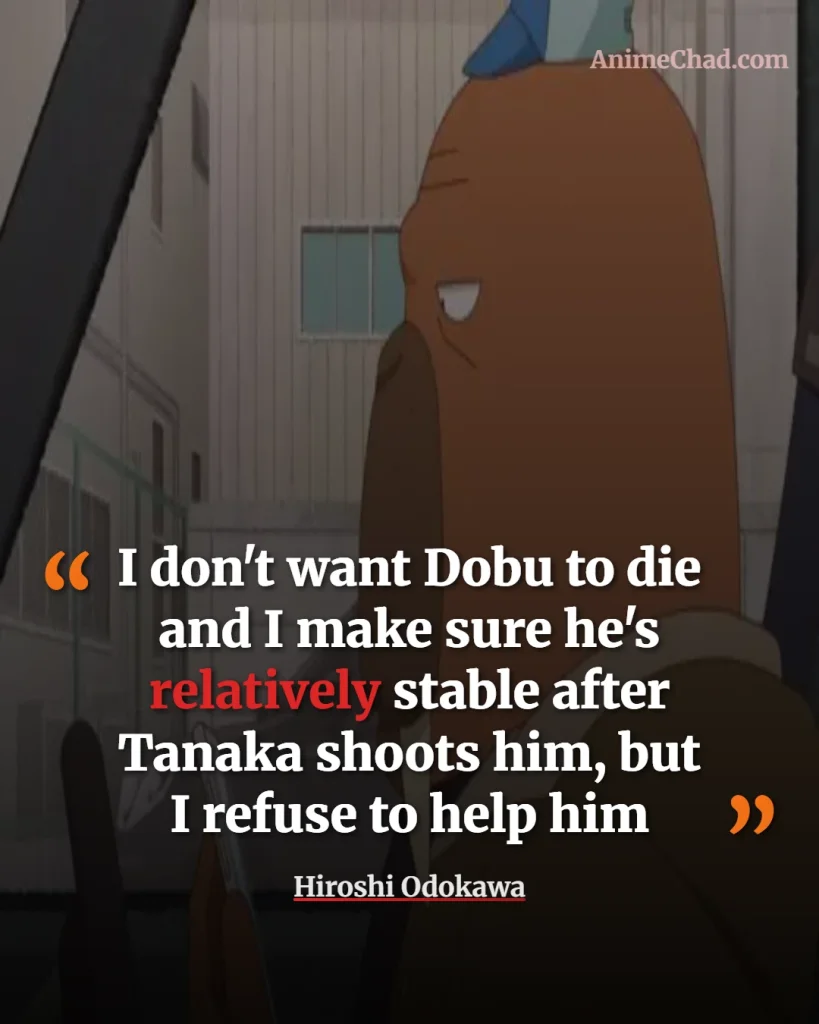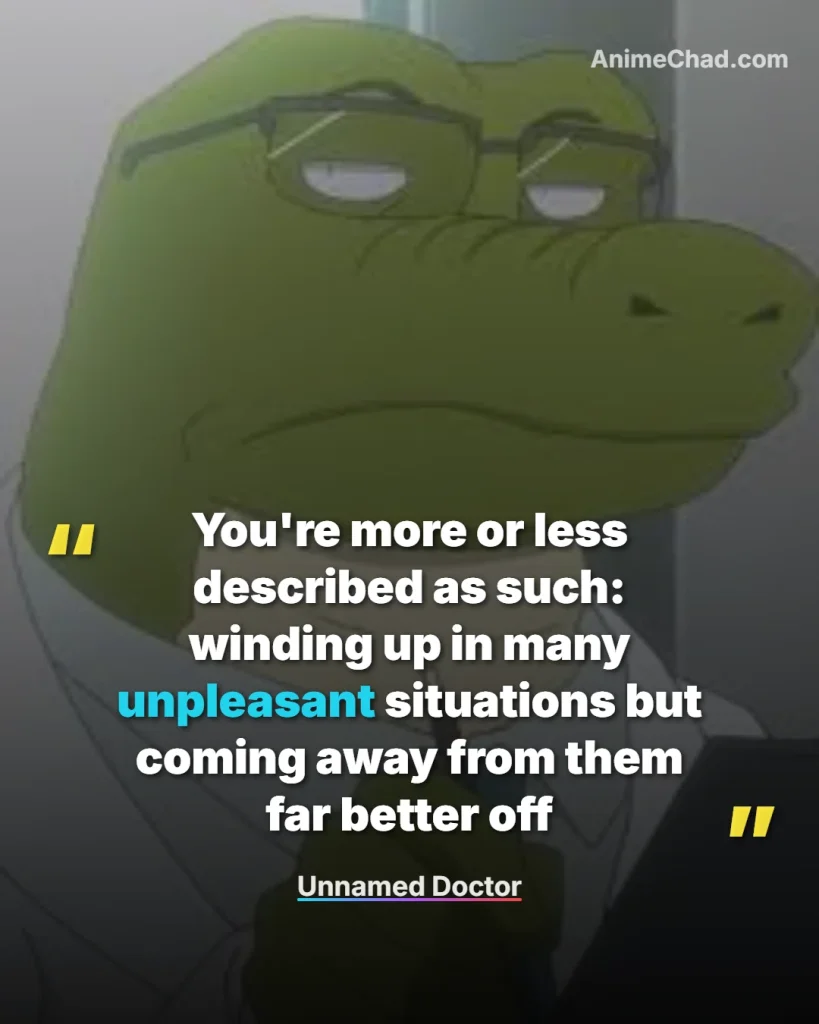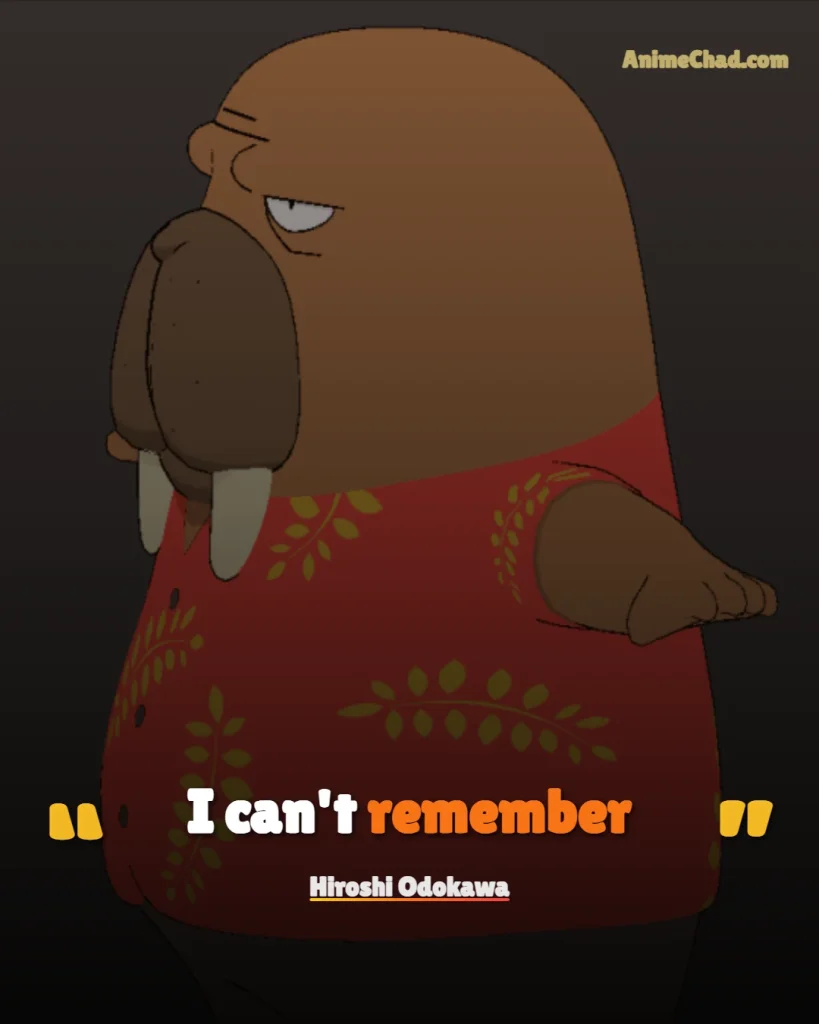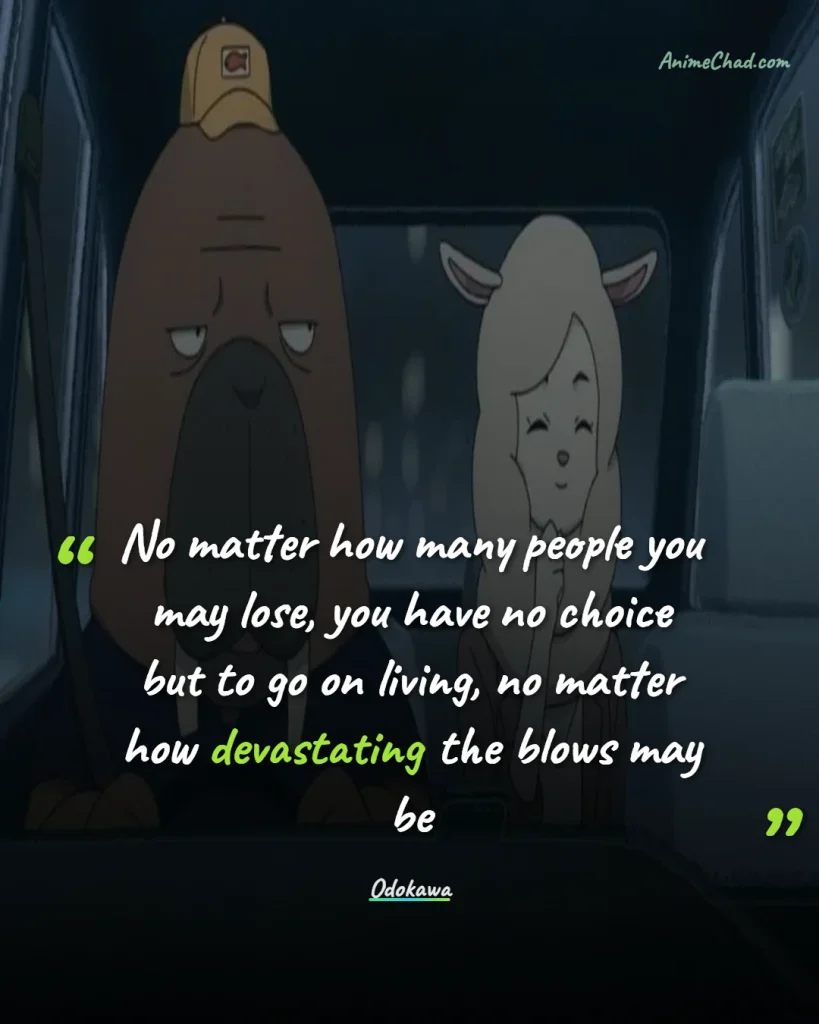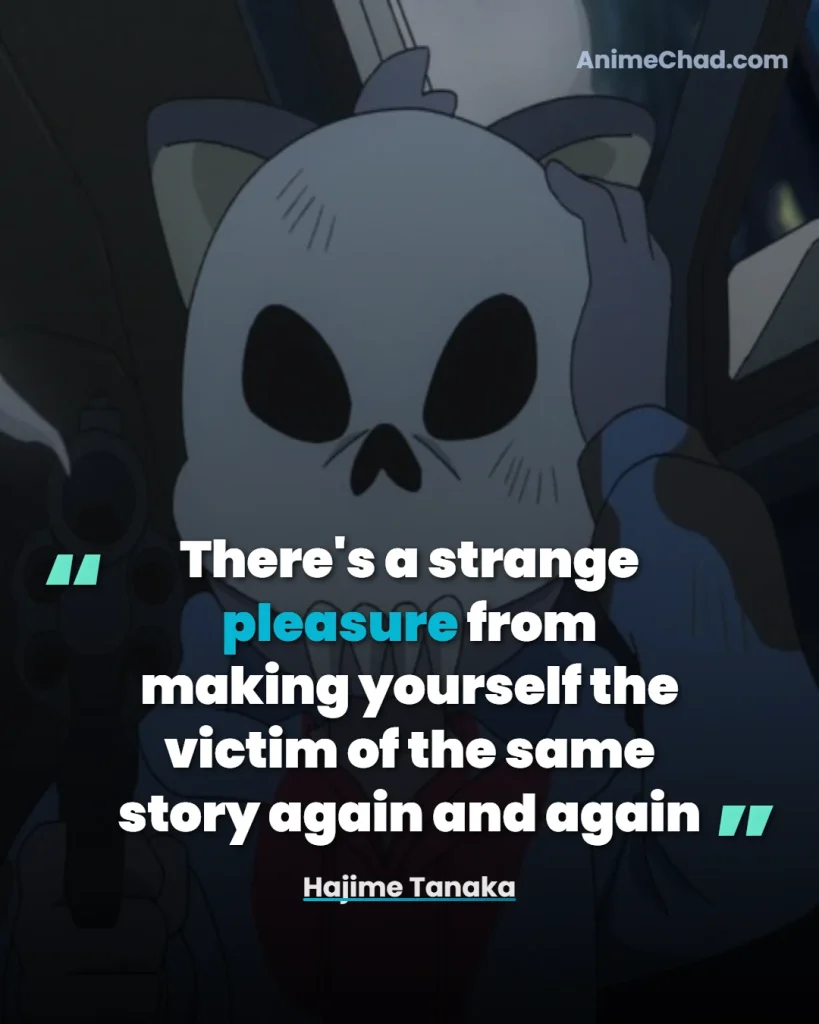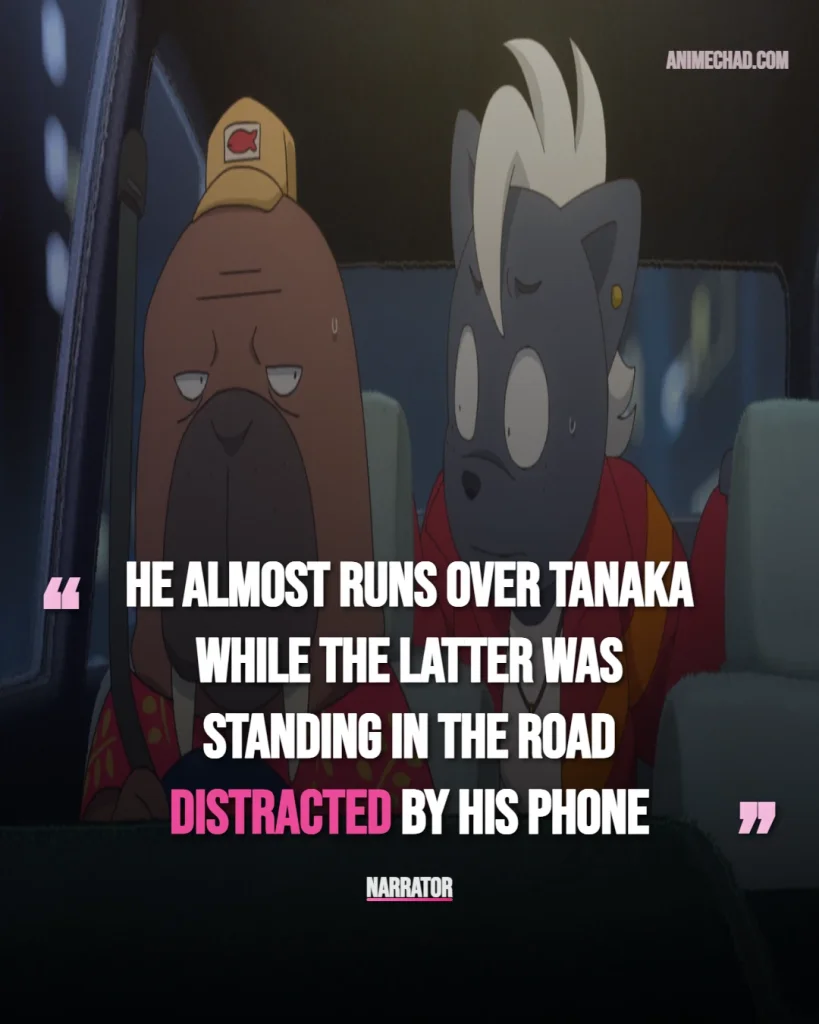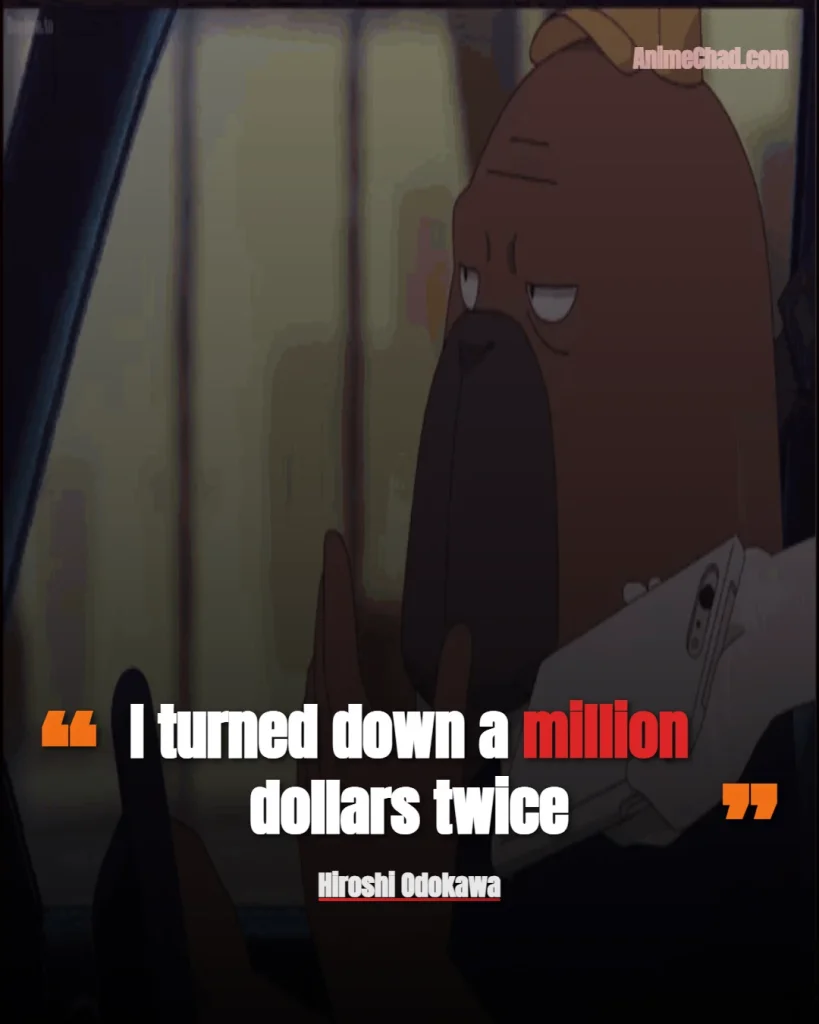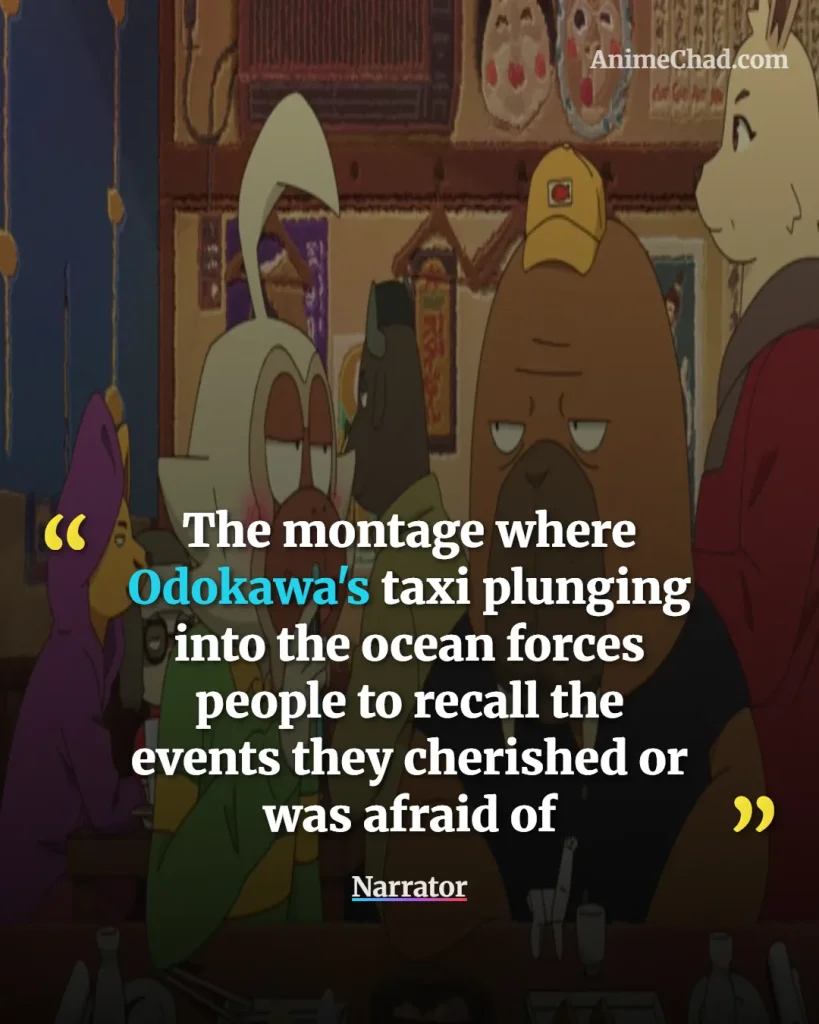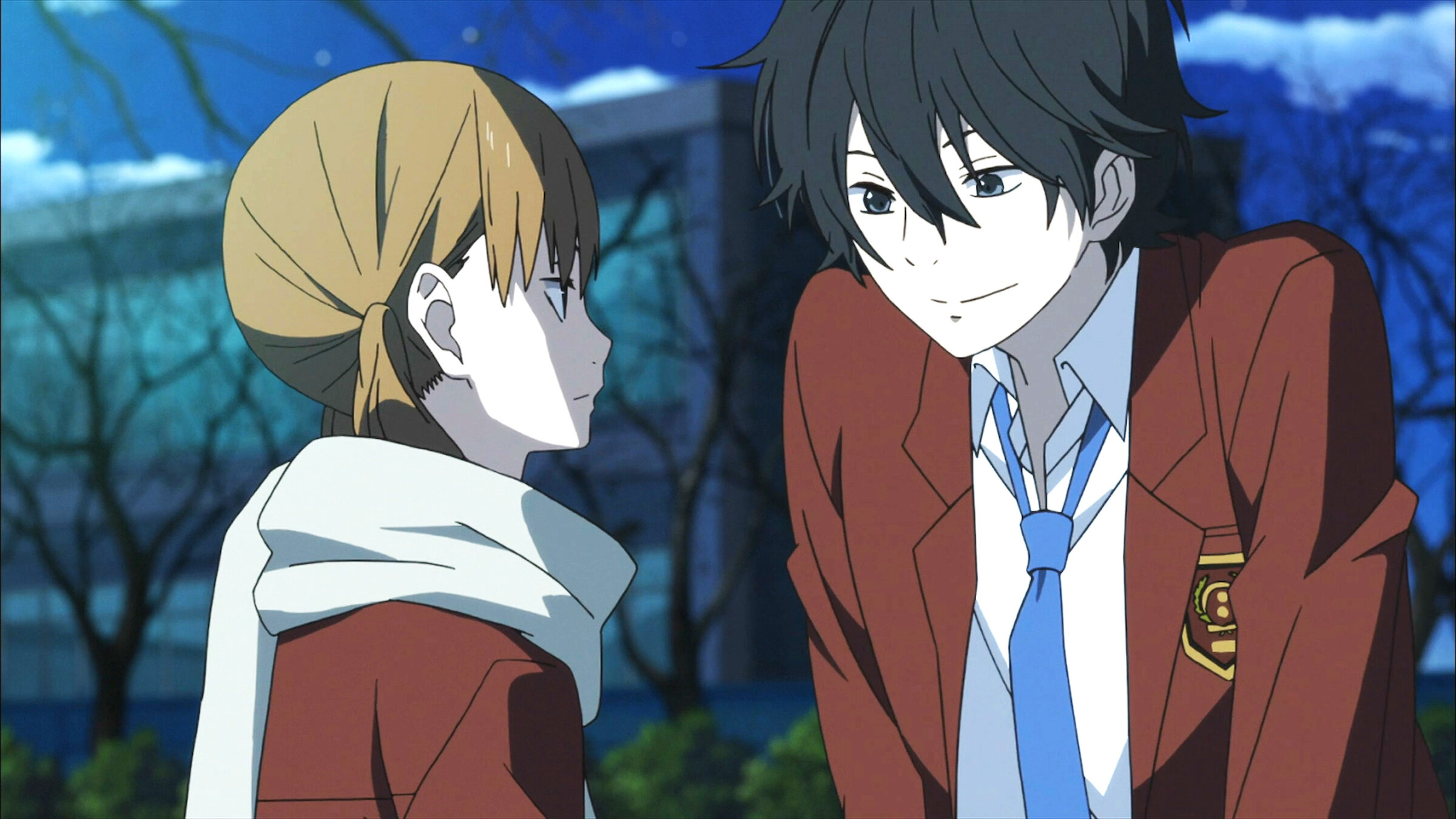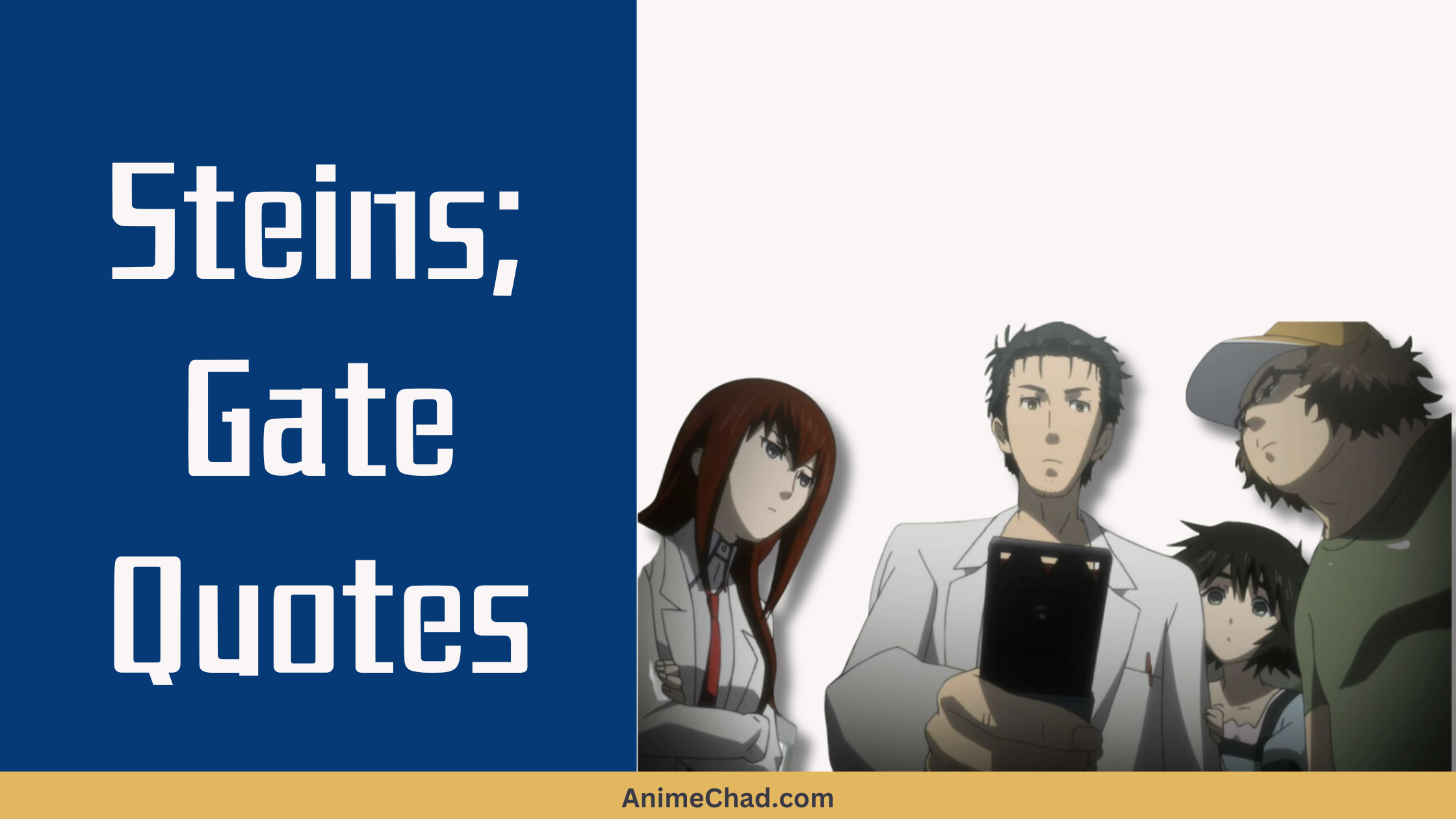Odd Taxi follows Hiroshi Odokawa, a solitary walrus taxi driver navigating the underbelly of a city populated by anthropomorphic animals, as he becomes entangled in a web of mysteries involving missing persons and hidden connections. The series delves into profound themes of isolation, regret, the illusion of social media fame, and the quiet desperation of unfulfilled dreams.
This curated collection of 25 quotes captures the essence of these themes, highlighting character growth and emotional depth across key arcs, from everyday drives to tense confrontations.
All I want is to be able to repay the people who helped me, little by little, to the best of my own ability
Episode 1 (Regular Customer)
Hiroshi Odokawa
Odokawa’s humble resolve underscores his growth from isolation to quiet reciprocity, tying into the series’ exploration of small acts amid personal disconnection.
I’m starting to realize I wasn’t that interested in the answer to my own question
Episode 1 (Regular Customer)
Hiroshi Odokawa
This reflective line during a mundane fare reveals Odokawa’s emotional detachment, marking his arc toward confronting past traumas in a world of superficial interactions.
Drop the generation gap crap
Episode 1 (Regular Customer)
Hiroshi Odokawa
Odokawa’s blunt retort to his doctor highlights his resistance to easy labels, emphasizing themes of misunderstood loneliness and bridging divides in peaceful nightly drives.
If you’ve got nothing to hide, open your door
Episode 1 (Regular Customer)
Unnamed Police Officer
The officer’s probing demand during Odokawa’s interrogation adds tension to the mystery arc, showcasing paranoia and trust issues that propel Odokawa’s reluctant involvement.
There must be someone who made this world, too. Perhaps this world has been programmed. Hey, God. It’s you
Episode 4 (The Girl Who Has It All)
Hajime Tanaka
Tanaka’s existential rant amid his breakdown captures his descent into rage, connecting to broader themes of fate and displacement of grief in a digitally obsessed society.
Humans are wired to remember painful experiences more so we can avoid the thing that caused us pain
Episode 4 (The Girl Who Has It All)
Hajime Tanaka
This insight during Tanaka’s wanderings reveals his character development from gamer to vengeful figure, highlighting the series’ motif of inescapable regrets in battle-like pursuits.
I can’t stand to lose even though she’s aware she can’t win every time
Episode 11 (The Girl with No Dreams)
Rui Nikaidou
Rui’s narration exposes her jealous desperation, marking her growth from rival to reformed idol, linking to themes of competitive isolation in the idol arc’s high-stakes drama.
Being alone is better than being with the wrong person
Episode 7 (The Victim and the Criminal)
Hiroshi Odokawa
Odokawa’s advice to a passenger reflects his own solitude, advancing his emotional arc toward valuing genuine bonds over toxic ones in the series’ quiet, introspective moments.
You weren’t always the loser that you think you are
Episode 10 (The Mastermind and the Fool)
Hiroshi Odokawa
Odokawa encourages Kakihana post-rescue, fostering the gibbon’s self-redemption, and tying into themes of hope amid scams and lost love in the romance-mystery arc.
Now you can’t escape
Episode 5 (Mystery Kiss)
Hiroshi Odokawa
Whispered to the back room suspect, this line heightens the thriller tension, showing Odokawa’s protective instincts emerging from his passive driver persona.
Good girl
Episode 5 (Mystery Kiss)
Hiroshi Odokawa
Odokawa’s subtle reassurance to a hidden figure underscores his empathetic core, developing his role as an unwitting hero in the disappearance investigation arc.
I know my desires and pleasures are temporary, but that’s exactly why I need something to latch onto
Episode 4 (The Girl Who Has It All)
Hajime Tanaka
Tanaka’s admission during his spiral illustrates his addictive tendencies, connecting to the series’ critique of fleeting online validation and personal downfall.
Taking a selfie with me is likely not a good idea that you can get to be viral instantly
Episode 2 (The Eccentric Driver)
Goriki Shirakawa
Goriki’s warning to Kabasawa blends humor with caution, highlighting themes of fame’s pitfalls in the peaceful library encounters leading to viral chaos.
Life is more fun when you’re in love
Episode 4 (The Girl Who Has It All)
Unnamed Passenger (inspired dialogue)
This lighthearted exchange with Odokawa contrasts the series’ darker tones, showing his subtle openness to connection amid the romance scam arc’s emotional turmoil.
I rationally know that my thoughts are wrong and misguided but continue giving in to them because I can’t deal with the alternative
Episode 4 (The Girl Who Has It All)
Hiroshi Odokawa (narrating past self)
Odokawa’s childhood reflection reveals his trauma’s roots, marking profound growth as he heals, tying into isolation themes in introspective flashback moments.
Fate truly is cruel
Episode 4 (The Girl Who Has It All)
Hajime Tanaka
Tanaka’s lament upon finding the gun amplifies his vengeful arc, emphasizing the series’ fatalistic undertones in the high-tension pursuit of misplaced blame.
You could be getting tricked
Episode 8 (The Most Loved)
Hiroshi Odokawa
Odokawa warns Kakihana about Shiho, showcasing his protective bluntness and development from observer to advisor in the scam’s emotional battlefield.
I don’t want Dobu to die and I make sure he’s relatively stable after Tanaka shoots him, but I refuse to help him
Episode 12 (New Year’s Eve)
Hiroshi Odokawa
Odokawa’s firm stance post-shooting highlights his moral boundaries, advancing his arc of quiet justice amid the yakuza confrontation’s intense stakes.
You’re more or less described as such: winding up in many unpleasant situations but coming away from them far better off
Episode 9 (The Day of the Banquet)
Unnamed Doctor (to Odokawa)
This observation of Odokawa’s luck underscores his resilience, connecting to themes of unintended redemption in the escalating mystery web.
I can’t remember
Episode 5 (Mystery Kiss)
Hiroshi Odokawa
Odokawa’s denial to police about the passenger reveals his selective memory trauma, pivotal for his development in unraveling the disappearance arc’s peaceful deceptions.
No matter how many people you may lose, you have no choice but to go on living, no matter how devastating the blows may be
Episode 13 (After the Rain)
Odokawa’s
Odokawa’s closing wisdom encapsulates survivor guilt, tying character arcs to perseverance themes in the resolution’s reflective, post-battle calm.
There’s a strange pleasure from making yourself the victim of the same story again and again
Episode 4 (The Girl Who Has It All)
Hajime Tanaka
Tanaka’s self-analysis during obsession shows his path to potential reform, linking to the series’ exploration of cycles of pain in digital-age isolation.
He almost runs over Tanaka while the latter was standing in the road distracted by his phone
Episode 3 (The Falcon’s Breath)
Narrator (on Odokawa’s incident)
This pivotal accident sparks Tanaka’s rage, illustrating unintended consequences and Odokawa’s unlucky luck in the thriller arc’s building tension.
I turned down a million dollars twice
Episode 13 (After the Rain)
Hiroshi Odokawa
Odokawa recounts rejecting bribes, affirming his integrity and growth beyond greed, central to themes of honest living in the finale’s peaceful reconciliation.
The montage where Odokawa’s taxi plunging into the ocean forces people to recall the events they cherished or was afraid of
Episode 13 (After the Rain)
Narrator (on collective reflection)
This climactic symbol prompts arc-spanning growth for all, emphasizing redemption and memory’s weight in the series’ emotional, battle-to-peace transition.

